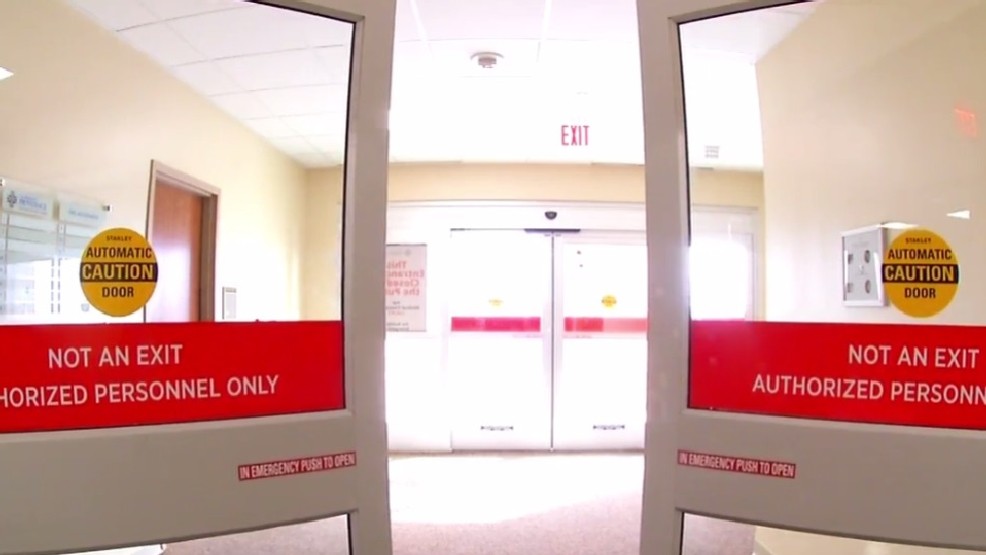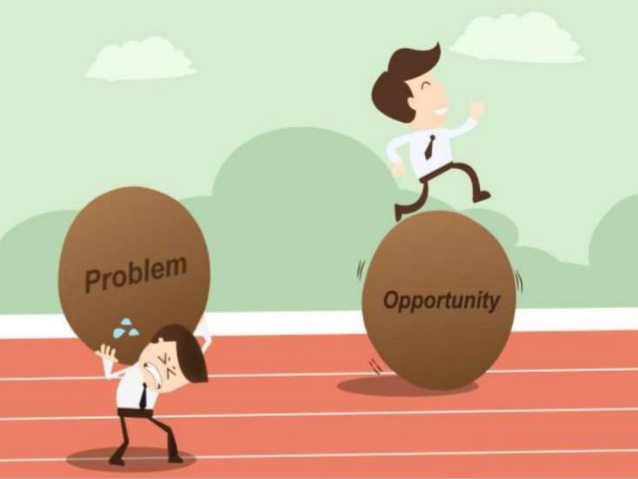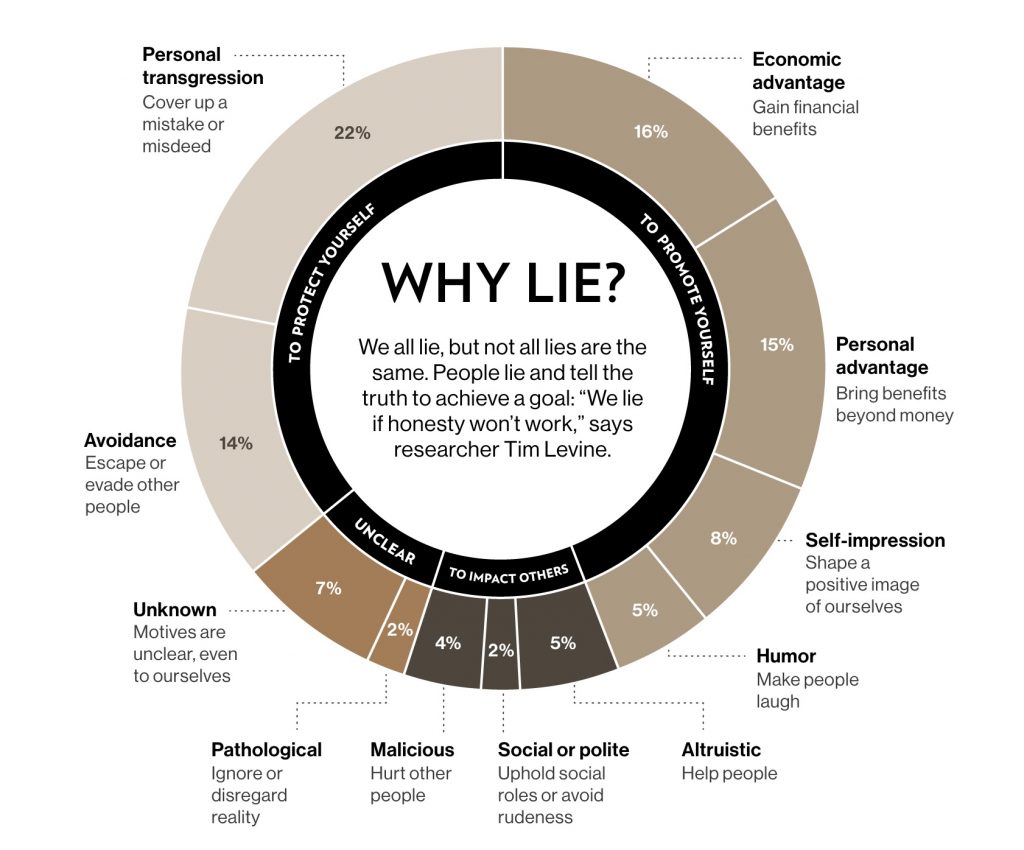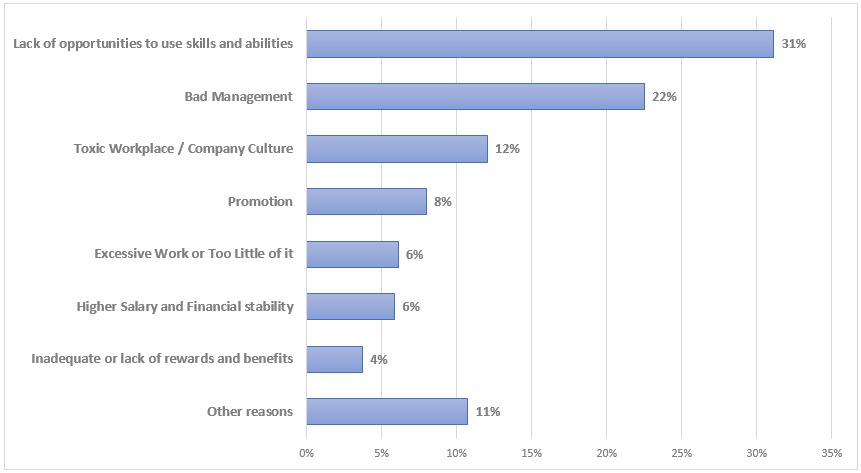Our Kids Aren't Ready to Have the College Conversation
"So, you going to college or..."? If you are anything like me and have kids nearly ready for life beyond high school that is where you are right now. You have had the college chat more than once and reached your limit for blank stares and half-answers. The war between your pocket and your hopes for your kids are twisting your thoughts and your nerves.
What if your kids are feeling the same way you are? Maybe they want to give you a solid answer and they are just unable to figure it all out.
The dreaded conversation
Sitting at the kitchen table with my kids I decided to ask them the dreaded question one more time. When the last words escape my lips, I immediately want to retrieve them. They both threw their heads back and exhaled deeply as if I was getting on their nerves. Neither of them realized how close they were to a throat chop, but we can save my karate fantasies for later.
They attempted to come up with an answer that would appease my curiosity, but would also resemble the truth. Epic failure on both counts. Their verbal constipation ended abruptly with, "Well, I think I want to do something with the law" and "I think I want to be a nurse?"- combined with a synchronized shrug and a slacked jaw supported by a palm and an elbow on my kitchen table.

My daughters sat staring back at me while their eyes revealed small contractions in their brains, but little else. The upward lilt in their intonation let me know that they were not quite sure about the response but it was the best they could do. I simply said, "OK women". It was then I realized there was only one answer to this obvious mystery.
If they had clarity they would say...
Dear Dad,
We keep making up answers to the college questions because we know that you think there is synaptic activity between our ears. We are smart but we don't have any life experience. Also, we never want to have an entry-level position because those take too long. We want to have lots of money, be fancy, and exert the least amount of effort possible. We would also like to have a job that is at least as glamorous as an episode of Law and Order, Grey's Anatomy, or The Blacklist" (We don't have to get dirty for that right?). This job should also comes with a title that will impress grandma's friends at church so that she doesn't keep saying how spoiled we are.
Sincerely,
A2 Nash
Despite my moment of improvisation, you get the point.
Why ask our kids questions we know they can't answer?
Remember when you were 17? It has been awhile, but attempt to think back to who you were at that age. There are three very good reasons new graduates have no idea what they want to do with themselves after high school.
- They have no real world experience with which to decide what they are both good at and enjoy or will pay them at a rate to sustain their imaginary lifestyles.
- The only exploration they do in high school is on the successful completion of state-mandated tests and new features added to social media platforms. Basically, they have become really great at memorizing things and corresponding electronically about nothing.
- The people they are today, are not the people they will be in 4-8 years, so their hopes, dreams, and desires will shift before they ever complete the first degree program
Should they commit to earning a degree?
I asked a question on Facebook to see if any of my friends think about this issue and to see if we shared similar sentiments.
Many of the responses were exactly what I thought they would be, but a couple surprised me. Not all parents are on the " you gotta go to college bandwagon" like earlier generations. Not all recent future/ recent grads see themselves traveling the traditional path to success.
Why? Most people are just sick of piling on debt for a degree that has no guarantee for future success. I don't have a stack of cash sitting around waiting for my kids to leisurely figure themselves out, while I am able to help them, the "finding myself routine" just isn't in the cards. I do, however, know where they could get a good sturdy pair of stilettos. Just kidding.
Coaching your kids into adulthood
Parents want the best for their kids, but they also want them to be able to get out and stay out. For that to happen you must have a chat about planning with them. College is not the only option and they will need the flexibility to try on a few options before they find a good fit.
College, like anything else, is what you make of it. If you know for a fact that your kid is not a self-starter, ready to milk college for all its worth, its beneficial to talk with them about alternatives. Let them know that you are invested in their success as an individual whatever that will look like.
A few ideas to start your chat
- Remind them to compete with no one and everyone. Meaning, always do your best, but never compare your journey to anyone else's.
- Success lies at the intersection of happiness and financial stability.
- Degree's are tools, not guarantees.
- Just because a path is traditional, doesn't mean it's for everyone. Never be afraid to freestyle as long as you can commit to making your choices work for you.
Don't forget to share your thoughts with me. You may have some ideas I didn't.
Regg
Does your confidence speak when you choose not to?
I talked with a friend the other day. We talked about some articles that talked about confidence and he wanted to know my opinion. I thought, aww hell here we go again. We discussed two articles. Our talk centered on one question that each article discussed.
"How do Confident people handle their Insecurities"?
Maybe you would like to check them out for yourself. Just for you, I put a couple of links below.
It's a flawed question and founded on the idea that confident people are different from other people, but we will get to that in a moment.
After our chat about the articles, I decided to give them a good 'ol look. The more I inspected them, the more annoyed I became. I know, I know, you probably think this is an overreaction to common dribble everyone encounters on the internet. You are right, but that doesn't mean I'm not in my feelings just a little. I'm thinking about all people told, " hey, wanna know why you have a suck job, or this is why no one listens to what you say, it's because you don't show enough confidence".
You meant well, but
I understand that these recommendations come from a place of help, but they make me wonder who is helping whom. Is there a great outcry from a timid public, all waiting to have their lives made over by the confidence gods? I'm not sure, but I am almost positive that isn't the case. It is my firm belief that confidence techniques are a scam. That's right, the kind of scam you can witness with a $5 ticket to a magic act at a traveling circus. The only difference between these techniques and a magic show is the magic show ends.
The first thing I noticed after reading the info in both articles is they were almost the same article, written at different times by different people with the same tips only re-worded. That in itself does not discredit the information, but it was enough to raise my suspicions as I dug deeper. I noticed the type of advice shared. It was the kind of backhanded help that sneakily implies that you are not good enough while also saying despite your unworthiness I'm still going to help you be better than you are now.
The next problem is in the set of assumptions connected to the nameless group of confident people who act out the prescribed behaviors. The article authors assume the performance of confidence is consistent, or people who interact with the "confident folks" subscribe to the manufactured personas. Most, if not all, the improvements guaranteed to make you seem more confident had to do with manipulating others or deceiving yourself. Have a look at the list below.
They suggest you follow these suggestions
Confident people should/shouldn't
- Speak with certainty.
- Seek out small victories.
- They exercise.
- Don’t seek attention.
- They don’t pass judgment.
- Get their happiness from within.
- Listen more than they speak.
- They take risks.
- Aren’t afraid to be wrong.
- Celebrate other people’s successes.
Five of the ten items listed either have nothing to do with confidence or are inconsistent behaviors that nearly everyone performs irregularly.
Simply appearing confident is very different from actually feeling confident. My point here is nothing about the suggested behavior modifications connect exclusively to a select group of highly motivated people who have figured out the secret sauce to success. If you plan to modify your behavior or reinvigorate the way you conceptualize yourself you will need something considerably more robust than a list of tips or mantras.
Being fair
All the items on the list are just good habits in general. Will they make you more confident, maybe, but what's more important is understanding that confidence is a feeling and like all feelings, it's fleeting. Everyone is insecure at some point. We all worry about what others think of us, the severity however, is the determinant of whether we alter our behavior accordingly.
I have heard people describe confidence as the "it factor" or you are born with it or you aren't. None of that is true. Confidence has nothing to do with an abstract quality that you only get by winning the genetic lottery. It is also not obtained by adopting qualities that are not innate to who you are as an individual. There are standard modes of communication that inspire feelings of comfort or confidence in the information that you share, but that comes from quality explanations and clarity.
How you feel about yourself centers on past experiences combined with your perception of the reactions from those you interact with. If you want to feel more confident more frequently, focus on improving how you feel about what you offer as an individual. The source of self-confidence comes from three places, all of which determined solely by internal conversation.
- How you feel about yourself
- What you think others think of you
- How good you think you are at a given task
There is something you should notice about the list you just read. Everything there has to do with what you think. I can't express that enough.
What does that tell you
For me, it means that I determine my confidence levels and maintain it's fluidity in any situation. I don't know one person that feels 100 percent confident at all time, however, a person who feels confident at most times handles moments of insecurity differently. They don't allow one setback to deter them from their goals nor are they perpetually defeated by stressful situations.
Remember to love you first and everything else gets easier.
Don't forget to share. Let your voice be heard here, I would love to know what you think.
Regg
New Year New You
I want to be new too
“New year resolutions”, “No resolutions”, “I’m on a mission”, “It’s my year”, and even “God got me!!!”. The stars are aligned to make a resolution.
I’m not saying your resolution will crumble, fall apart, or wither on the to-do list you created it on. I am saying that It’s on you. Yes, You; the man or woman in the mirror staring back at you. It's whether or not you are willing to go all in for yourself and your family. This is a new year for the new you.
Make this the year you make a decision to "Change or be Chained"! Chained to the things that keep you from forging ahead towards the best you. That’s all that matters. This could be the best year of your life. Doesn’t that excite you?
Today is...
A few questions come to mind as we progress through the beginning of 2018.
- Will you avoid the folks with negative attitudes and join in on the fun?
No matter what it looks like, you can and will achieve that which you believe!!! Remember “Rudy”? He finally got his day on the field for Notre Dame. Even though he was ridiculed by even those closest to him. Stay Positive in 2018. - Have you set goals for the new year or are you still “trying to figure things out?
I learned a long time ago if you want to be successful, do what successful people do. Plan ahead. Jim Rohn said his mentor told him once he started "setting goals", his life changed. Once you set goals, pursue them with focus and determination. What is written down gets done. Maintain the "I will succeed attitude", no matter the obstacles. This means not being afraid to fail. - What would you do if you knew you couldn’t fail?
I’m sure the list is long. So go ahead and do it. The best way to face your fears is head on. Winning is tough, but losing is tougher. You’ll thank yourself for it one day.
While traveling the path to success, pay attention to new opportunities. You may come across a situation where you can be of assistance to someone. These may be times when you can learn something new that will eventually benefit you.
It can come from nowhere
Before I began my entrepreneurial journey, I was working for my mentor, helping him with odd jobs around his office. One day he asked me to help him run his business. At the time I was working overnight at a copy center, making $400.00 a month. No that is not missing a zero. However, I did not agree to work with him immediately. I told him I wanted my own office one day and I had to think about it. Lol. I had big plans for those $400.00
What he said next caught my attention, “You’re not doing that now and besides, what do you think you will learn from me?”
If I'd had said no?
I would have missed an incredible opportunity. Now, 22 years later, I'm still in business. I share this story with you to encourage you to not only recognize opportunity but to grab it with both hands. Those rare moments are often pivotal moments in our lives. My parting advice, be confident. Feeling confident has an amazing impact on your life, it's the difference between "I could" and "I did". Learn to believe in yourself, because your life depends on it. You got this!
Whatever “this” is for you. When you set the expectation that you will achieve success, and eventually you will. The world will reward you with what you put into it. Just be ready when it does.
I hope this message inspires you.
Follow me on Facebook or check out my newsletter to get the new you on the road.
SaveSave
SaveSave
SaveSave
SaveSave
SaveSave
Soft Skills Are The New Bottom-Line
Hard skills vs soft skills
The argument about which skills are more important or necessary is as old as the argument about whether great leaders are born or developed.
Both sides have compiled convincing arguments, but throughout the thirty plus years, I’ve been working with personal and professional leaders something is glaringly obvious: Those who want to reach the top are willing and committed to doing whatever it takes to get to there. In today's business and leadership environment that means developing self-awareness, emotional intelligence, communication and conflict resolution—so-called “soft skills.”
Hard skills can get you there—soft skills keeps you there
We have all grown up with a hard skills emphasis on a post-secondary education, and although there is no doubt that this is very useful, there are other vital factors to be considered.
Just for a moment be really honest and consider this: Imagine that you have an executive opening in your organization and you have two applicants for a position. One applicant has been in the post-secondary educational systems for six years and has run labs with other students in the program. This person also graduated with honors. The other applicant has hands-on industry experience, gone through its evolution and successfully led teams from various backgrounds/ specialties throughout that same six years.
With the limited information, you know which candidate is a better fit for the position? If you are like most effective leaders you would likely say the second candidate for many reasons, not least of all the savings in training and development. Let's put even that to the side for a moment and ask; which of the two is likely to have had to learn the people skills needed for them to lead an executive position?
Commitment
What those committed individuals going to the next level understand is;
[bctt tweet="Hard skills may get you to the top, but it’s soft skills that will keep you there and make sure that you are not alone when you arrive!" username="Rexdmundo"]
Those who embrace this idea are the leaders who become the heroes who can and will, overcome any obstacle, with time.
The world of business and leadership has changed dramatically in the last fifteen years. The ruthless dictatorial style of leadership that dominated the past is on life support and about to take its final breath. The new generation of leaders understands that business and success are people driven. Not only do they use the latest technologies and strategies to disrupt their industries, they also recognize something old-school leaders never truly grasped: Soft skills make the most impact on your bottom-line.
Lacking soft skills is expensive
The American workforce has found that just 30 percent of the American workforce is “engaged and inspired” at work, with the other 70 percent either disengaged or miserable. According to a 2013 global Gallup research project: ‘Managers from hell’ cost the US between $450 billion to $550 billion annually. “Gallup research also shows that these "managers from hell" are creating active disengagement Gallup Chairman and CEO Jim Clifton chalked the disengagement levels up to these poor managers.
“When leaders in the United States of America — or any country for that matter — wake up one morning and say collectively, “Let’s get rid of managers from hell, (the research shows that the managers (and leaders) from hell and the ones who lack the soft/people skills and who are entirely focused on hard skills and results) ... double the number of great managers and engaged employees, and have those managers lead based on what actually matters,” everything will change,” he added.
“The country’s employees will be twice as effective, they’ll create far more customers, companies will grow, spiraling healthcare costs will decrease, and desperately needed GDP will boom like never before.”
The biggest obstacle
The outstanding leaders of today and tomorrow are the ones who are the most committed to self-awareness and self-development. The reasons are simple: they are better with people and they understand that if there is a business obstacle to overcome, it is overcome in the mind of the leader first.
Let’s take the example of Iranian business people. In your travels, in your neighborhood, you have no doubt met many Persian people, (Iranians). By and large, I have found them to be kind, caring and hardworking people with a deeply entrepreneurial spirit that has made them successful business people wherever they have landed.
Different But the Same
Recently I had the honor of speaking with a highly successful business leader from Iran who has invited me to speak to 700 business leaders in the capital city Tehran at The 9th Annual World Management Forum. Our initial conversation was deeply revealing because it showed me that business leaders face the same challenges wherever they are in the world.
Tehran
Tehran is a sophisticated modern city with 16 million person population in its greater metro area. It has one of the highest populations of the millennial generation, and despite what you may have believed, a highly educated workforce. Women now comprise the majority of students at the university. But Iran is also a highly sanctioned country with a government that may care more about an ideology than it does about assisting you with business.
Think about the challenges you face in doing business today, and now imagine what it would be like to face those challenges in Tehran. In my conversation with the Iran business leader, it soon became clear that business leaders all over the world understand that it is the soft skills of mindset, purpose, emotional intelligence and vision are what it takes to succeed in an ultra-competitive business world—no matter where in the world you are.
Tomorrow’s champions
One of the reasons I love serving in the world of business is because today’s champions of personal growth are the business leaders who will dominate over the next decade! And that means utilizing soft skills to maintain the most profitable.
By the way, did you know that discipline doesn't work well when it comes to leadership? Find out what does:
[embedyt] https://www.youtube.com/watch?v=CjRMyti2bXw[/embedyt]
I trust that you found this article valuable. If so feel free to send this to your friends. I eagerly anticipate your feedback and comments. Please share, like and comment below!
With gratitude,
Dov

My Authentic Leadership Matrix is free at this link! Why? Because one of the questions I’m most often asked is; What authentic leadership is and how do we define it? As a result, with years of experience and extensive requests, I created Authentic Leadership Matrix. It’s designed to give you a clear process of how to perform in each of the five main areas required to become a world-class authentic leader. Start your yes and no evaluation to discover your leadership traits here: http://matrix.fullmontyleadership.com
Click here for my latest for Entrepreneur.com.
Want to retain your top talent? Then my “Fiercely Loyal” book is for you! Plus get your free: “How to instantly bond any team” infographic.
It's Always Easier to Be Honest
Honesty
Today, lying is as plentiful as oxygen. But trying to find honesty, however, often requires a team of archaeologists. Wondering whats behind the trending dishonesty? Thought about why some people are incapable of honesty, and some are more truthful overall Everyone says "I just want people in my life who will be honest", but is that what we really want?
The common scientific understanding explains there is an instinctual need for humans to lie. I have even heard qualified scientists say " lying is an innate part of the human existence", that we need lies to manage the harsh realities of life. The assumption is that lying mitigates damage to relationships and allows individuals to interact with one another and inflict the least amount of emotional harm.
Most people feel like they tell "harmless lies" or their reasons for not being honest allows them to spare the feelings of others. Perhaps they lie to avoid confrontation. Whatever the reason, the pervasiveness of lying is at an all-time high. Check out this video from Time Magazine, where they explain some of what they think are substantive reasons for lying.
If you believe what you just saw in the video, you may now feel more comfortable about lying or be soothed by the explanations shared. Maybe you saw habits you recognized, at the very least, you understand why lying happens so frequently. I believe to some degree, there are lies we tell or truths we omit for the benefit of others. All things being equal, let's want to think about the people who tell lies for self-serving reasons and how best to interact with them.
The trouble with trying to identify which type of person you are dealing with, one who means well or one who is just a trickster, is that no one does either exclusively. So what do you do? You do your best to be as honest as possible. There is something innate to the truth that elicits specific reactions and behaviors. If you are leading by example, it is more likely that they will follow suit. There will always be outliers, but that's no reason not to give it a shot.
IRL
I have a friend who is not necessarily dishonest, but he does have an issue with complete disclosure. You know, those people who tell you most of a story, but leave out a little for their own comfort. This guy so suspicious of everyone he censors everything that he says. I suspect this behavior comes from a lifetime of concealment, or perhaps it's a coping mechanism for dealing with conflict. Who knows? What I do know, is there is nothing worse than an unsolicited lie.
During our friendship, I made several attempts to persuade him to knock it off. Have you ever hung out with someone you couldn’t ask simple questions?
For example, “What have you been up to”?
That’s simple enough. Not aggressive or intrusive.
Instead of a simple answer, he would say things like, “Why? You heard something?”
Try a little understanding
Information manipulators are tiresome because they require excessive maintenance. Often they don’t realize their secrecy/dishonesty is really a pain in the ass. They are consistently guarded and wary of potential conflict. Communication with them is a nightmare. If only they recognized that honesty is so much easier.
If you recognize any of these habits in someone you know, or potentially your own behavior, see the information below for some ways to categorize, understand, and navigate the behavior you meet.
After your figure them out
Once you have identified and understood what/who you are dealing with, begin with a simple rehab. Offering them the chance to redeem themselves by letting them know you are open to whatever their truth is. This offer however takes time and is the most permanent solution. After all, this is a lesson they should have learned long ago.
If you interact with people who you feel uncomfortable being honest with, you may need to curtail your dealings with them. If you are the one with the issue, think about what could really happen if you were completely honest. When the result of a change is the end of your relationship, perhaps the relationship neither participant was honest about what they wanted from the beginning.
Salvage as much as you can of your self-esteem and set the truth free. If your situations involve family, it could be a bit trickier. A family has years of history and patterns of interaction, and the habits will be much harder to break and you will face unexpected feedback. This is the wage for the injurious behavior you have fostered over the years. Have patience while they adjust to the part of you they have never met and vice versa.
Honesty requires courage and if this behavior is not a natural part of who you are, work on it. Anything less will can only result in the slow erosion of your core values or result in self-sabotaging behavior. Summon the necessary courage to be vulnerable and accountable.
Tact will help you avoid stepping on other's feelings with your honesty. Being truly honest requires finesse in every situation, and for people of integrity, it is the only acceptable choice.
[bctt tweet="Integrity is telling myself the truth. And honesty is telling the truth to other people. ~Spencer Johnson" username="wwregg"]
This is a tough lesson. Feel ok about working through it a little at a time but it is doable. All you need is willingness and commitment. Let’s take the next step together.
I am always interested in what you have to say, so I look forward to reading your responses. Don't forget you can tweet me here.
SaveSave
SaveSave
SaveSave
5 answers you need before you leave your job
Another year has come and gone, and like millions of others, I too have returned to the daily grind. I remember how I promised to continue to make baby steps toward financial freedom and my career goals. At 9:05 a.m., moments before the marathon conference calls begin, once more, I find myself wondering why I still work here. How long is too long to stay in the same job, and how do you know when it’s time to go?
What do you need from your job
I 'm sure I can guess what you need most from your job. Money! I know, me too. That is the first thing that comes to mind when we consider that question, but there are some other important needs that are equally important. Have you thought about why you aren’t happy with your career as it is today? Sometimes we feel like we just need a change. The desire for change is a common feeling, but have you thought about why the urge is present more often lately? The desire for change is rooted in feelings of discontent. In truth, we need to feel fulfillment in the workplace.
Contentment is a primary driver for the desire to change careers. The uncanny thing about this subtle motivator is how often we fail to fulfill this requirement. There are all sorts of reasons that people decide its time to go, as illustrated by the chart below. When we think about our mental tic boxes, those things we think our “awesome” job must have, we organize them into a hierarchy with remuneration at the top.
The average person will overlook most of their requirements if the offered salary is sufficient. While salary is important, it should not be the only controlling factor you consider in the decision. The danger in being completely salary focused is the inability to sustain job satisfaction.
What does satisfaction feel at work?
In your current job, do you feel undervalued, or like the tasks you perform do not meet your basic need for a challenge? This could be an indicator that you are due for a promotion, or that you have outgrown the demands of your current position. Can your season of discontent be repaired by moving to another department? Perhaps you only require additional training and/or credentials to transition into a job that suits you?
If you are seriously attempting to decide if it is time for you to leave your current job, these are the sort of questions that need answers to before deciding to move forward with a career adjustment. All jobs get boring occasionally, but the type of dissatisfaction that we are talking about here is the kind that is unending. Some folks dread waking up in the morning because they know that the new day will only bring more of the same.
Assuming you have decided that it's time to move on, let's consider the type of planning you will need to turn your choice into actionable items. This kind of move requires research and thought. If your ultimate career choice is vastly different from what you do currently, take the time to talk with individuals who have already done what you want to do.
Get good details
The first step in your plan is to collect information from your career pioneers. Ask them things like:
- How long did it take you to get the skills and experience needed for your current job?
- How long was it before you were comfortable with your current income?
- What kind of roadblocks did you experience during your journey?
- If you could change one thing about what you do now, what would that be?
- What was the most unexpected bi-product of your career?
I have accumulated a couple of careers during my journey. Each time I transitioned from one career to the next, I was required to have new skills and experience. Normally, big decisions scare people and keep them trapped in a job/career longer than they ever anticipated. We all want to be happy, but emotional and financial happiness often go hand in hand.
Second, you will need a road map for your finances. Any decision that will alter the state of your financial life demands that you consider two major things:
- the cost of the change
- transition time
Still deciding?
Your third step will require some imagination. Think about possible outcomes and contingencies. Try the practice scenario below.
You have been at your current job for the past 5 years and you feel like you have gone as far as you can go with the company. A new function at the same company will only produce a lateral pay increase. The new role does not allow you the autonomy and flexibility that you would need to feel satisfied with your change. You have just been offered a job with “Company X” and you want to know…Is it time to go?
- If you can negotiate terms that will not put yourself nor your family in financial jeopardy, and the “fulfillment factor’ you require is present its time to go!
- If you show up to work daily, and you can no longer imagine what it would be like to work anywhere else, you have been there too long and it’s time to go!
- If you are a spectator, meaning you feel like a powerless observer in your current job, its time to go.
Success starts with a plan
Make a list of the things that you enjoy and are good at. Decide how many “fulfillment factor” points are available. If you need more training or education, plan for it. Sign up for one class and then another. The feeling of progression boosts your motivation. Do things that bring you closer to your dream even when it feels hard or complicated.
The time to get off the comfort train is now, but don’t abruptly abandon your job for your dreams. Transitioning into poverty will hardly increase your feelings of fulfillment. If changing careers means that you are going to have to take a pay cut, may need to create backup funds cushion while you rebuild your career currency in a new field.
Be smart! Figure out your best plan for transitioning from what you do now to what you want to do and make a timeline for completion.
Enjoy the info shared here? Great! Make sure you leave your comments and questions below. It would be great to hear from you. If you have suggestions you would like to share or just a general question send me an email here.
Regg.
How to Unsuccessfully Spend Your Sunday
The madness begins
Sunday evening, I took my daughter to the emergency room at Baylor hospital. We went there for help with severe dehydration, after not being able to keep anything down for over 12 hours. This was also having a negative impact on her blood glucose levels, she is a type-1 diabetic. Before you feel too bad for her, it was her own decision to eat hamburger pizza that she left out all night and part of the next day. It was also her choice to eat a freshly baked, two-week-old cookie that she hid in her room.
Waiting room blues
During her intake interview with the triage nurse, a middle-aged man came to a grinding halt just outside the emergency room doors. He then jumped out of his enormous Ford truck, without regard for any of the previously arrived patients, screams “I need help for my daughter and I need it now”! I’m not surprised by this, especially since it’s an emergency room, pretty much everyone there needed help now. After spotting a nurse at the desk, he stops her from talking to the current patient, and orders her to attend to his daughter. He provided her with the details of her “home diagnosis” and her intestinal valve blockage due to pregnancy.

No one in earshot knew what that meant. To the credit of the attending nurse, despite his discourteous behavior, she said “I’m gon call someone to come help you now, ok suga”. After three entire minutes, no one has come and the guy is visibly and audibly frustrated. Strutting and stomping the entire length of the waiting area, we are all forced to listen to him berate the nurses and the hospital staff.
We were all advised that every patient room in the ER was full and that there would be a wait. Patients with barely attached limbs caused by a car accident were the priority. If you were not bleeding or otherwise dismantled, you would have to wait your turn. You know, triage…
Calmly, the nurse explains again, nobody is available to help him get the patient out of the car. “Bubba” found a wheelchair and gets daughter out of the pick-up. She wailed with the same intensity as a person on fire. Still, no nurses have arrived.
Don't you know who I am
He went around to the ER doors and tried to get through, shaking them. No luck “Bubba”. They take her info, and send her back out to the waiting room. “Bubba” is like fuck this, and calls 911. In comes a security guy, and wants to talk. Satisfied with “Bubba’s” story, the security guard walks away. “Bubba” is still not for the song and dance going on in the ER! Daughter says, I’m feeling sick. “Bubba” tells daughter “just throw up on the floor, they aren’t helping us anyway”. During this madness, his truck remained right in front of the ER doors. No ticket given, no request to have it moved. No ambulance arrived.
911 doesn’t understand why “Bubba” is calling from the ER, requesting an ambulance to take him to a different ER. Imagine that.
“Bubba’s” privilege had successfully impeded the progress of my daughter’s treatment. All the disturbance he created prevented the head staff nurse from starting an IV for my severely dehydrated child. She left to contend with security and soothing an irate father. I could not believe his arrogance. I understand the concern that a father has for his child, believe me I do. After all, I was there for the same reason.
Most Parents
My primary concern in this moment was securing help for my child. Everyone in that ER had the same things on their minds, but submitted to the “order” of things except “Bubba”. After having time to check the details of the day, I realized that all the interference disparate treatment we experienced comes from 3 places.
- The confidence and entitlement “Bubba learned as a child has permeated all aspects of his existence, thus giving him the unmitigated gall to act so during his emergency.
- The vehement declaration of his rights convinced all the non-white female hospital staff, that attending to his demands outweighed their procedural training and good judgment.
- Simply, our race made us less important during challenging moments.
[bctt tweet="“They made you an Amendment and convinced you it meant 'American.” " username="wwregg"]
What's left
I can show the problem, and convey my sentiments, but the necessary solution is a global one. All I have left is an observation that continues to mystify my understanding of humanity. Many believe that privilege is an abstract topic best in the halls of academia, while those that live with the adversity daily know better.
This lighthearted conversation covering a serious topic denies that concept, by illustrating one of many scenarios occurring daily. It's not that I think that I am coming from a place of no privilege, what I am saying is that mine isn’t quite inalienable.
Please leave your comments below, let me know your thoughts. Talking about it is the only option.
Falling Down Is O.K, Staying Down Is Not
Never Forget Why You Started

Deep breath! Roll your eyes and plaster on a smile that is as close to genuine as possible, and remind yourself that today is another opportunity to make a positive impact on those impressionable college youth that has come to learn. Over and over again you repeat to yourself, "Falling down is OK, staying down is not an option and you carry on".
How it begins
We all have that thing that we love to do, even when deep down inside we are not sure why. We do know that we cannot live without it. It is equal to being hooked on a drug, except it has a positive outcome and you get to keep all your teeth. That is what teaching college students feels like to me. If you are lucky you will get at least one section of students that are actually there for themselves, to learn, to grow and not as a prerequisite to keep mamma from kicking them out of the house.
You hope you will get this

What you really get.

Here is what I have learned about being a college professor so far:
- I know measurably less than I ever considered: I was severely under-prepared in the area of communication, mostly because I am only a novice at speaking millennial.
- I'm not nearly as flexible as I thought I was: When I grabbed that shiny graduate degree, I was ready to be an academic boss. (click for dance break) I laugh to myself as I type this, because it is the kind of thing that you say to yourself and never admit the private hubris you feel, publicly.
- People almost never respond the way you think they will: I had all these grand designs, all these inventive ways I would change the face of learning! #fail
- Being liked and being respected are not mutually exclusive: At first, you try being a hard ass, then you try being the cool young professor, in the end, it's really a blend of both that will help you get the job done.
- Don't be afraid to watch your students fail themselves: I kept assuming that if they failed it would somehow be my fault. The truth is mostly all they are good at so far is manipulation and avoiding responsibility. It's the leftover "nurturing" from high school. Just make sure they know how to be successful and stand back.
You have to remember
 College has a way of making you feel like the world will open up and lay itself at your feet. Once you complete your rigorous curriculum, you feel entitled to select the job that fits you best, demand decent pay, and most importantly they are lucky to have you! In reality, you have completed the bare minimum for someone to hire you. If you are lucky you don't have to go to work armed, and in my case, you can find a car that is cheap enough to afford, big enough to ride in for more than thirty minutes, and nice enough that security doesn't think you are a students and give you a citation for not having the parking pass.
College has a way of making you feel like the world will open up and lay itself at your feet. Once you complete your rigorous curriculum, you feel entitled to select the job that fits you best, demand decent pay, and most importantly they are lucky to have you! In reality, you have completed the bare minimum for someone to hire you. If you are lucky you don't have to go to work armed, and in my case, you can find a car that is cheap enough to afford, big enough to ride in for more than thirty minutes, and nice enough that security doesn't think you are a students and give you a citation for not having the parking pass.
I can do this
Don't think any of what I have said applies to everyone, but in most cases, all professors experience some version of this. Falling down is O.K, staying down is not. I do still believe teaching is rewarding, I am doing my best. I do not feel bad, by any measure, for taking the wrapper off one of my dreams and finding that it is nothing like I expected. Eventually, I will be able to mold this dream into something that goes far beyond what I initially imagined.
This is how your tuition dollars are used” Unprepared for College
Where are the students
I have worked as a college professor, in one capacity or another, since 2011. Until last fall, I was consistently optimistic about the progression of my skill level as an instructor, and the quality of the student population. I imagined there would be some disconnection between the high school curriculum, and opportunities to bridge gaps in knowledge. I always want to send a new batch of students on their way to academic success. I'm not foolish or self-important enough to believe that I will have an impact on lives of all my students, but that does not keep me from giving it a shot.
I usually inherit a room full of young people (intermingled with actual adults) who have been delivered to the higher education system fresh out of f**ks and unbothered. Colleges are overrun with groups of young people, super confident in their skills and sorely lacking in their performance. Before you deep breathe, slow blink, or offer an obligatory eye roll, please take a moment to recognize that this is an “in the trenches assessment” from someone close to the issue. This does not apply to every student, but the majority of first-time students go on break prior to clocking in for work.
Why students are failing themselves
As near as I can tell, anything adjacent to an explanation for this decline in student preparation can be categorized into three areas
- No one told them excuses made in high school are now void: Bottom line, no one cares that you were sick, that you were hung-over, or that you forgot that it was due. Figure it out!
- No one ever made sure they had adequate adult coping skills: Believe me; I understand that we love our children, however, the parade of second place prizes and pep talks ensuring them that they were still winners even though they lost just were not the answer. If you lose, you are a loser. “If you’re not first you’re last and all that sort of thing”. It’s ok to not be the best, it builds character and determination.
- Life up till now has been pretty convenient: Not everyone was wealthy, got it, but most people have had access to modern conveniences. Cell phones, computers, on-demand T.V. , have all helped to cement convenience as a custom or expectation. The reality is that work is, well... work, or we would call it something else. Learning is often not convenient, occasionally not easy, and never done exactly your way.
-
Bonus reason Below:
Seriously!
So what do you do? The only thing that I have found that combats the apathy of some student is consistency. When students have a routine, it helps feel a measure of control over their chaos. If all else fails, there is always scaring the shit out of them. Just kidding!! (mostly). So parents/guardians, fear not, there is hope for your spoiled little ball of raw potential. They can come out shiny new and full of...well I am not exactly sure what they will be full of, at least they will have a set of skills.
Just kidding!! (mostly). So parents/guardians, fear not, there is hope for your spoiled little ball of raw potential. They can come out shiny new and full of...well I am not exactly sure what they will be full of, at least they will have a set of skills.
Growing Through Changes: 2. You Can't Stay Angry
Can we talk about this

I sit next to a guy called Jake at work, who is pissed off pretty much daily. It really doesn’t matter what the situation is. He is so talented, that he can will himself into being pissed off in 60 seconds or less, kind of like a weird magic trick.
Can we talk? OK.
Last week Jake organized a meeting, which he subsequently controlled via conference call. For the record, I was not part of this teleconference, but I have skills, so it was like I was. At some point, Jake was not getting the participation he imagined he would. He got really pissed, announced to the participants, “If you didn’t intend to participate in the process then why the hell did you call in?” Professional, right? Not. Jake makes a conscious choice to be angry. Anyone this mad this often is mad on purpose and not by accident.
If things aren’t going wrong, odds are you’re dead
Resist the urge to rehearse anger. Getting annoyed, frustrated, or angry is a natural part of life, but as you mature so should your coping skills. You don’t have to tell the story to someone! “Can you believe this?”, “Let me tell you about these SOB’s at work”, and any other intro you have heard or used for an angry rant. It’s OK to talk to your confidant’s, but don’t tell your “mad” story again and again, not even to yourself.
First things first, you mad or…
If you are just not sure how your bad attitude is, click this link and take the test. (Don’t live like Jake!)
Now, On to the good stuff!
Here are some easy, relatable, and realistic things you can do.
- Remember other people do not share your notions of right, wrong, or fair.
- Be nice to yourself, and nix the negative talk. Don’t’ encourage your anger by saying “things never go my way”, or “No one pays any attention to my ideas”. Self-serving pity only serves losers! (I know that’s harsh, but it’s still true)
- No one is out to get you, it's likely they are not even thinking of you at all. Angry people tend to jump to conclusions, however far-fetched. It's a good idea to check yourself before you speak. If you wouldn’t say it in front of grandma, don’t say it at all.
- Angry people can be demanding. You cannot force people to experience things your way, nor can you make them respect and appreciate you. If they don’t, show them the exit ramp and keep driving. It’s really that simple. If this is a workplace issue, you don’t have to like the people you work with but you do have to be respectful and do your job.
- Always ask yourself what you are mad about. Is it something you shared? Is the person you are mad at in the room and did you clearly express your expectations? If the answer to any of these questions is no, you know you are out of pocket.
- Stop being defensive. No, really, just stop. There is no extra credit for being extra.
- Stop taking yourself so seriously. Your opinion of you is the only one that matters. This means that everything else is extra. If they like you fine, if not fine. 90% of the time they will at least think you are bearable.
- Have a sense of humor, with caution. Don’t just "laugh off" your problems. Try to use humor as a tool to diffuse your anger, you don’t have to speak it. Humor can go wrong quickly. Don’t be the sarcastic douche that no one finds amusing. Being passive-aggressive is simply not cute.

Don’t miss the next installment in the series, “How to think critically” Guaranteed to be a good one.
















